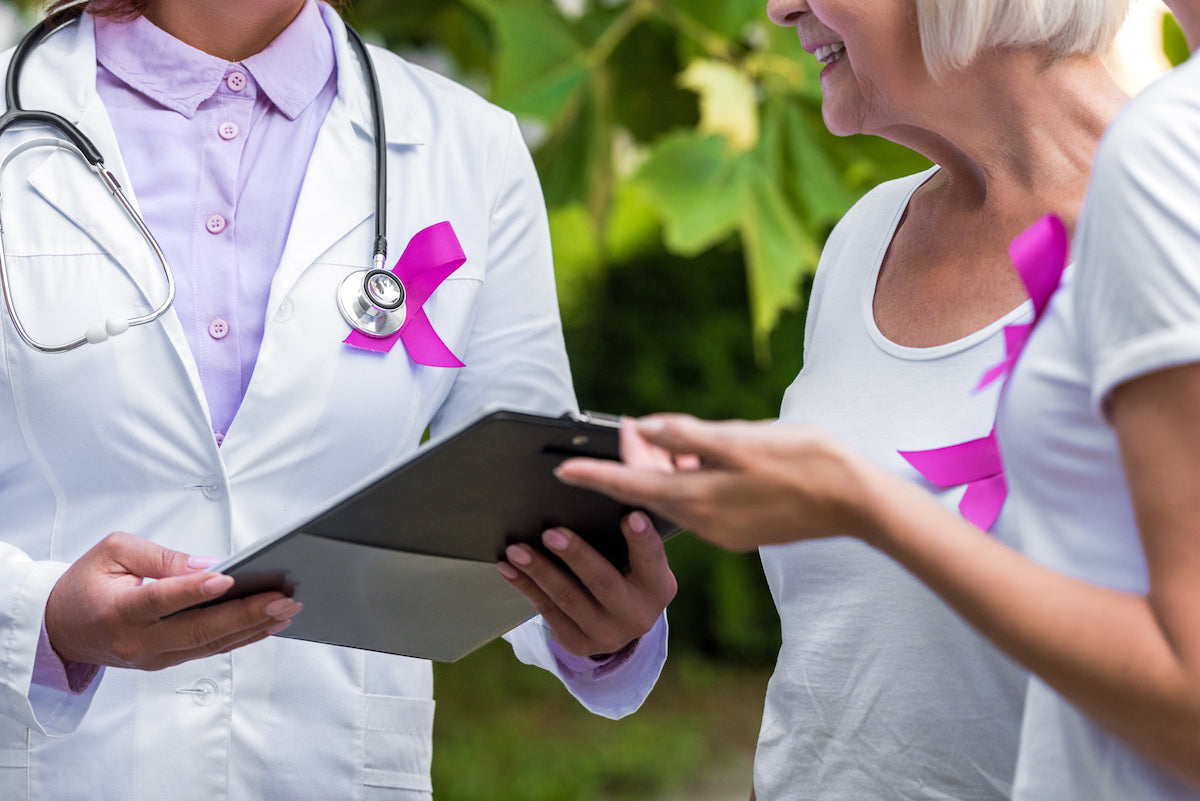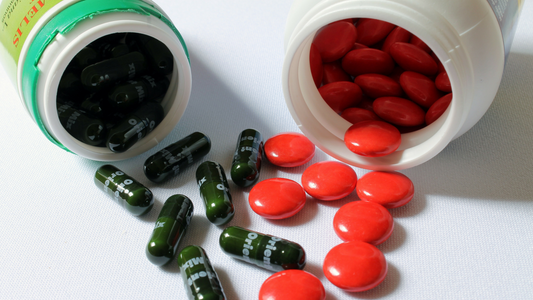To my courageous tribe of beautiful women,
I’ve heard from hundreds of you who have had a history of breast cancer and my heart aches deeply knowing the pain you’ve had to endure. Even after successful treatments, many of you still experience post recovery side effects, like vaginal dryness, painful sex, lack of desire, and atrophy of the vulva. I don’t want this to be your life!
If you know anything about me, you know it’s my desire, passion and life’s work to give back to women like you who give so freely to everyone else. I believe every woman deserves to feel like her best self at any age, especially those whose bodies have been through the fight of a lifetime. This is ultimately why I created Julva® – to give you something back. To help you feel strong, empowered, and even more beautiful and perfectly yourself again.
For those who may not use or be familiar with Julva, it is a restorative feminine cream for the vulva, used to address vaginal dryness, urinary leakage issues, libido and more…you can read about Julva here.
I’ve heard so many of you ask: Is it safe to use after a cancer diagnosis?
Here’s my answer.
Women with a history of breast cancer need to be particularly diligent about everything – even natural products – that they put in or on their bodies.
I always recommend that you first discuss the use of any new prescription, supplement or over-the-counter product with your primary care doctor. And if you’ve had cancer, certainly discuss it with your oncologist. The same stands true for Julva.
What you can share with your doctor is that Julva is a topical restorative cream intended for the vulvar area. It contains pure, natural ingredients to improve vaginal dryness and reverse the symptoms of aging. Ingredients include alpine rose plant stem cells, vitamin E, coconut oil, emu oil, and shea butter.
The only ingredient in Julva that may concern women with breast cancer is the bio-identical hormone DHEA because many women have been told to avoid any hormones after diagnosis and treatment. DHEA is naturally secreted by the adrenal gland and ovaries and is actually a protective hormone that supports brain, bone and breast health.

A Growing Amount of Supportive Research
Outlined below is research you may find helpful when discussing the use of Julva, and DHEA, with your doctor:
DHEA may provide a protective role against cancer
According to a recent paper published in Cancer Biology & Therapy (September 2016): “DHEA, an adrenal hormone, has a protective role against cancer.”
The authors go on to state that “DHEA inhibits the proliferation and migration of cell lines derived from breast cancer.”
In an earlier study, published in Eur J Pharmacol in 2011, researchers concluded that “DHEA also suppressed the migration of all breast cancer cell lines, independently of the presence of estrogen receptors, and decreased the expression of ECM-1 protein in Hs578T cells. These results suggest that the mechanism of DHEA actions against breast cancer involves the inhibition of cell proliferation and the suppression of migration, indicating that DHEA could be useful in the treatment of breast cancer.”
Vaginally applied DHEA has been shown to treat vaginal dryness, pain and other vaginal atrophy symptoms (including libido), especially in women, having had breast cancerOne particular 2014 clinical trial about how DHEA impacts local cells and tissue has not yet been published (as of today), however, I am including a link to the American Society of Clinical Oncology (ASCO) abstract presentation as well as an article on the positive results of the study. See my short video below as well.
Local versus systemic effect
Research shows that “topical DHEA (even when applied vaginally) does not cause an increase in intrinsic estrogenic or androgenic activity however it is transformed intracellularly into androgens and estrogens only in the cells in the vulvar and vaginal layers physiologically in need of these sex steroids.” (Menopause, 2009 )
What does this mean?
It means that DHEA impacts local cells and tissue where it is applied and has not been found to circulate systemically throughout the blood.
DHEA was determined to be “useful in the treatment of breast cancer”
Presentation With Mike Riepl About DHEA Research
I also spoke with Mike Riepl, a pharmacist and researcher, about this research. We were together at a conference on Hormone Replacement Therapy (HRT) in Las Vegas, sponsored by the Professional Education Services Group.
We had a brief opportunity to talk about the DHEA Bioadhesive vaginal gel in the noted study as having been found effective for women who have had breast and other gynecologic cancers for the treatment of atrophic vaginitis, vaginal dryness, low libido, and dyspareunia.
Specifically, the study looked at an alternative for estrogen preparations for the treatment of atrophic vaginitis, vaginal dryness, low libido, and dyspareunia. In June of 2011, at the request of North Central Cancer Treatment Group (NCCTG), in collaboration with the National Cancer Institute (NCI) and Mayo Clinic, the DHEA bioadhesive vaginal gel was developed by Gateway Pharmacy for the FDA-approved, Phase III clinical trial (NCT01376349). The abstract was released from embargo in June 2014 at the ASCO meeting in Chicago and is currently in the peer review process for publication.
Please note that this research has subsequently been published and can be found here.
There are other studies in the works as well.
I’ll continue to post new updates relating to DHEA on this blog as well as here in this research focused article on DHEA effectiveness and safety.

TAKE EXTRA PRECAUTIONS IF:
YOU HAVE UNCONTROLLED Polycystic Ovarian Syndrome (PCOS)
In earlier research (1999) women with uncontrolled PCOS and abdominal obesity may be associated with the late promotion of breast cancer stimulated by prolonged intake of DHEA. Typically women with PCOS have elevated circulating levels of DHEA and additional oral DHEA would not be warranted.
YOU’RE TAKING TAMOXIFEN
As a precaution, if you are currently using Tamoxifen I do not recommend using Julva without your oncologist’s approval. The research on Tamoxifen has shown:
ORAL DHEA (systemic) converting to estrogen can interfere with Tamoxifen use and can decrease its effectiveness when blood serum levels of DHEAS are > or = 90 microg/dL (Research)
Once off of Tamoxifen, I have no hesitation in recommending Julva to breast cancer survivors.
YOU'RE USING FEMARA/LETROZOLE
Femara/Letrozole (an aromatase inhibitor) does not appear to be affected by DHEA use and may be a better alternative should your oncologist agree. Some studies have in fact shown that breast cancer patients on aromatase inhibitors appear to benefit from higher levels of DHEAS and experience less musculoskeletal pain. (Research)
YOU'RE CONCERNED ABOUT THE RISK FOR BLOOD CLOTS
If you are concerned about the risk for blood clots: Consult with your primary care physician before trying Julva. We know that oral estrogen can increase blood clots; however trans-dermal estrogen, progesterone, & DHEA have not been shown to increase blood clots at all.
Please let me know if you have any questions relating to this information, you can always email me at Team@DrAnnaCabeca.com . We can also send information and samples to your doctor, just email us and provide that contact info.
Note that I can’t answer questions specific to your medical condition or treatment…please direct those questions, as always, to your physician.
Sending all my love and light, today and always, to you amazing women who have been affected by and overcome breast cancer.




